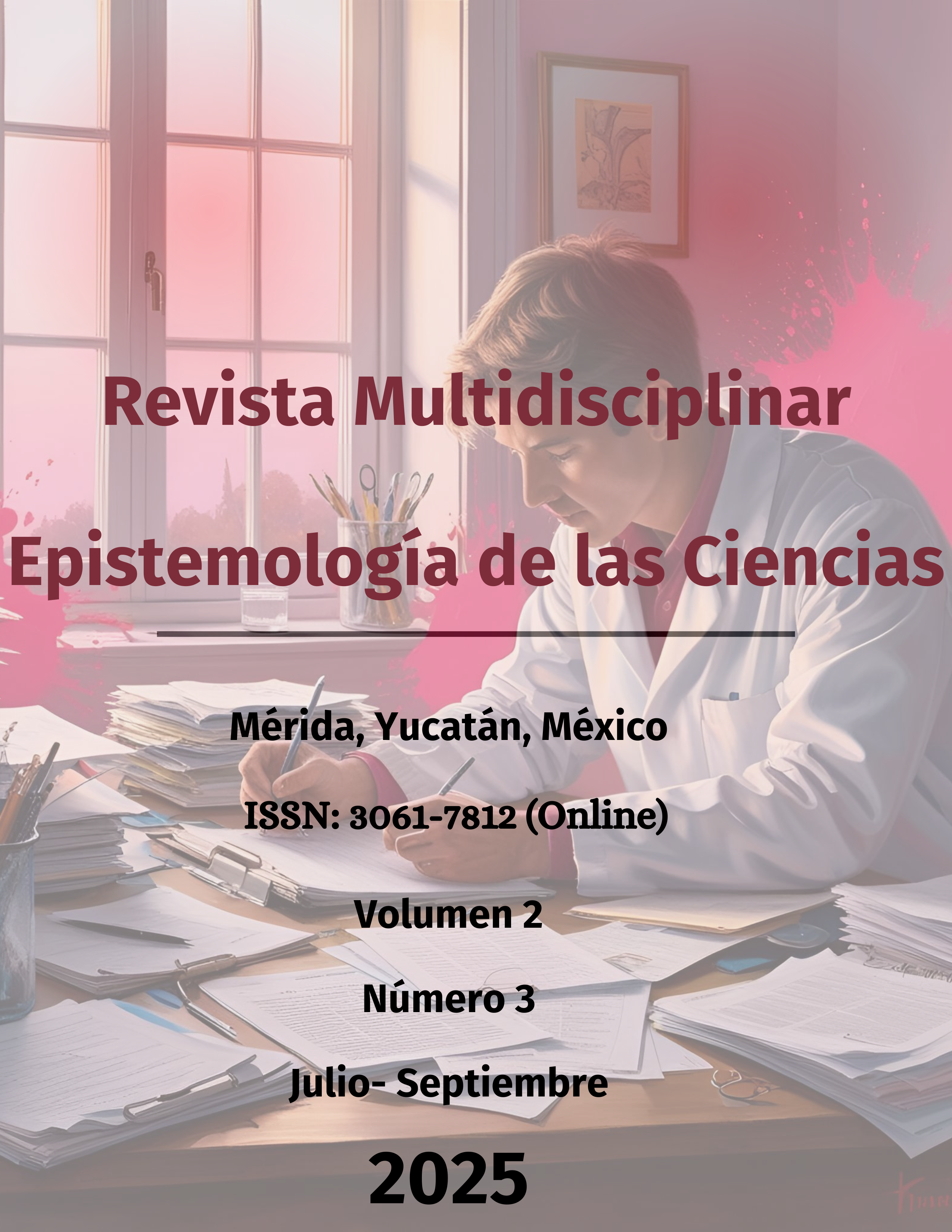Beéle and dynamic capabilities in the contemporary music industry
DOI:
https://doi.org/10.71112/vqv0ww84Keywords:
Dynamic capabilities, ontology, music industry, artistic identity, resilienceAbstract
The study analyzes the trajectory of Beéle and his album Borondo (2025) from an ontological approach to Dynamic Capabilities (absorption, adaptation, innovation, learning, and resilience), going beyond their functional, procedural, competence-based, or eclectic interpretations. Grounded in Van Manen’s hermeneutic-phenomenological perspective and in the works of authors such as Maturana, Varela, Nonaka, Takeuchi, and Teece, it argues that in the music sector, Dynamic Capabilities constitute ways of being that shape artistic, cultural, and strategic identity. Beéle integrates global influences with local roots, adapts his work to digitalization and global markets, innovates in genres and narratives, learns continuously, and maintains resilience in uncertain contexts. The study proposes hypotheses for empirical testing and a theoretical model that reaffirms this epistemological stance, suggesting that artistic analysis should consider both tangible evidence and intangible dimensions of identity and culture.
Downloads
References
Alcívar Martínez, B. J. (2024). Bibliometric analysis of scientific research on dynamic capabilities for innovation in organizations (2009–2023). ResearchGate. https://www.researchgate.net/publication/381753844_Bibliometric_analysis_of_scientific_research_on_dynamic_capabilities_for_innovation_in_organizations_2009-2023
Beéle. (2025). Borondo [Álbum]. Hear This Music LLC, bajo licencia exclusiva de 5020 Records. https://music.apple.com (o Spotify)
Biswakarma, G., & Bohora, B. (2025). The mediating role of organizational resilience in IT sector. Future Business Journal. https://doi.org/10.1186/s43093-025-00592-w DOI: https://doi.org/10.1186/s43093-025-00592-w
Cui, J. (2025). The impact of absorptive capacity, organizational creativity, organizational agility, and organizational resilience on organizational performance: Mediating role of digital transformation. SSRN. https://doi.org/10.2139/ssrn.5083189 DOI: https://doi.org/10.2139/ssrn.5083189
García-Valenzuela, V. M., Jacobo-Hernández, C. A., & Flores-López, J. G. (2023). Dynamic capabilities and their effect on organizational resilience in small and medium-sized commercial enterprises. Management & Marketing, 18(4), 496–514. https://doi.org/10.2478/mmcks-2023-0027 DOI: https://doi.org/10.2478/mmcks-2023-0027
Garzón Castrillón, M. A. (2018). Capacidad dinámica de adaptación: dimensiones y evolución conceptual. Contabilidad y Negocios, 13(25), 51–64.
Khin Enterprise Oo, N. C., & Rakthin, S. (2022). Integrative review of absorptive capacity’s role in organizational resilience. Sustainability, 14(19), 12570. https://doi.org/10.3390/su141912570 DOI: https://doi.org/10.3390/su141912570
Ma, F. C., Khan, F., Khan, K., & XiangYun, S. (2021). Investigating the impact of IT, absorptive capacity and dynamic capabilities on firm performance. SAGE Open, 11(4). https://doi.org/10.1177/21582440211061388 DOI: https://doi.org/10.1177/21582440211061388
Maturana, H. R., & Varela, F. J. (1980). Autopoiesis and cognition: The realization of the living. Reidel Publishing. https://doi.org/10.1007/978-94-009-8947-4 DOI: https://doi.org/10.1007/978-94-009-8947-4
Maturana, H. R., & Varela, F. J. (1987). The tree of knowledge: The biological roots of human understanding. Shambhala Publications.
Mendoza Betin, J. A. (2018). Capacidades dinámicas: Un análisis empírico de su naturaleza. MLS Educational Research, 2(2), 193–210. https://doi.org/10.29314/mlser.v2i2.80 DOI: https://doi.org/10.29314/mlser.v2i2.80
Mendoza Betin, J. A. (2019). Capacidades dinámicas y rentabilidad financiera: Análisis desde una perspectiva ecléctica en empresas de saneamiento básico de Cartagena [Tesis doctoral, Universidad Internacional Iberoamericana - UNINI México].
Mendoza-Betin, J. (2021). Resiliencia empresarial: Análisis empírico de aguas de Cartagena S.A. E.S.P. Revista Científica Anfibios, 4(1), 11–26. https://doi.org/10.37979/afb.2021v4n1.80 DOI: https://doi.org/10.37979/afb.2021v4n1.80
Nonaka, I., & Takeuchi, H. (1995). The knowledge creating company: How Japanese companies create the dynamics of innovation. Oxford University Press. https://doi.org/10.1016/0024-6301(96)81509-3 DOI: https://doi.org/10.1093/oso/9780195092691.001.0001
Teece, D. J. (2007). Explicating dynamic capabilities: The nature and microfoundations of (sustainable) enterprise performance. Strategic Management Journal, 28(13), 1319–1350. https://doi.org/10.1002/smj.640 DOI: https://doi.org/10.1002/smj.640
Teece, D. J. (2018). Business models and dynamic capabilities. Long Range Planning, 51(1), 40–49. https://doi.org/10.1016/j.lrp.2017.06.007 DOI: https://doi.org/10.1016/j.lrp.2017.06.007
Teece, D. J., Pisano, G., & Shuen, A. (1997). Dynamic capabilities and strategic management. Strategic Management Journal, 18(7), 509–533. https://doi.org/10.1002/(SICI)1097-0266(199708)18:7<509::AID-SMJ882>3.0.CO;2-Z DOI: https://doi.org/10.1002/(SICI)1097-0266(199708)18:7<509::AID-SMJ882>3.0.CO;2-Z
Trillo-Holgado, M. A., León-Urbán, C., & López-Caballero, R. (2022). La importancia de las capacidades dinámicas en el replanteamiento de una ventaja competitiva innovadora. Revista de Estudios Andaluces, 44, 287–304. https://doi.org/10.12795/rea.2022.i43.07 DOI: https://doi.org/10.12795/rea.2022.i43.07
Van Manen, M. (1990). Researching lived experience: Human science for an action sensitive pedagogy. State University of New York Press.
Zahra, S. A., & George, G. (2002). Absorptive capacity: A review, reconceptualization, and extension. Academy of Management Review, 27(2), 185–203. https://doi.org/10.5465/amr.2002.6587995 DOI: https://doi.org/10.2307/4134351
Zapata Rotundo, G. Z. (2020). Capacidades dinámicas e innovación en las organizaciones: Una revisión y proposiciones básicas. Compendium, 7(13), 25–36. https://revistas.uclave.org/index.php/Compendium/article/view/3890
Downloads
Published
Issue
Section
License
Copyright (c) 2025 Multidisciplinary Journal Epistemology of the Sciences

This work is licensed under a Creative Commons Attribution 4.0 International License.











